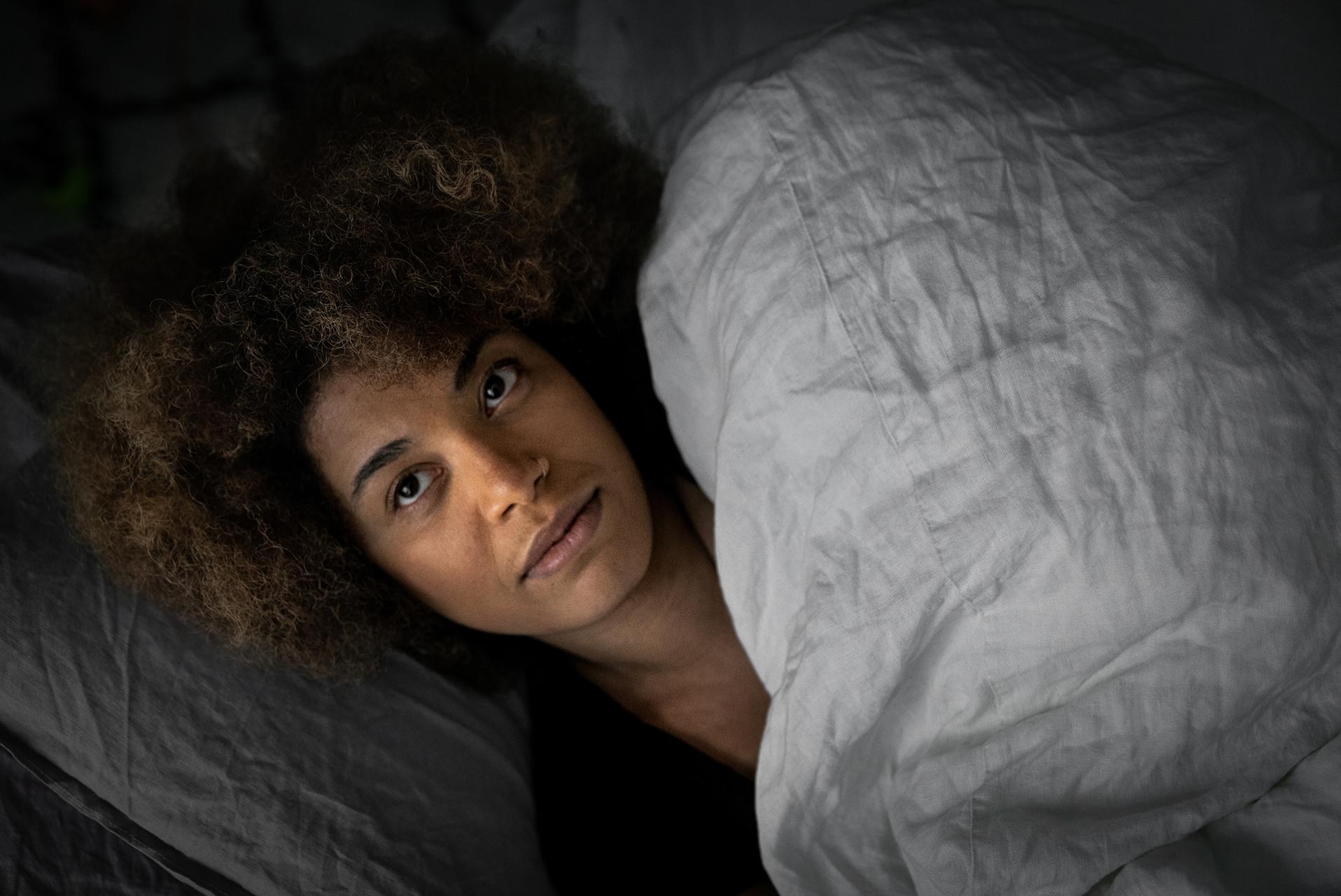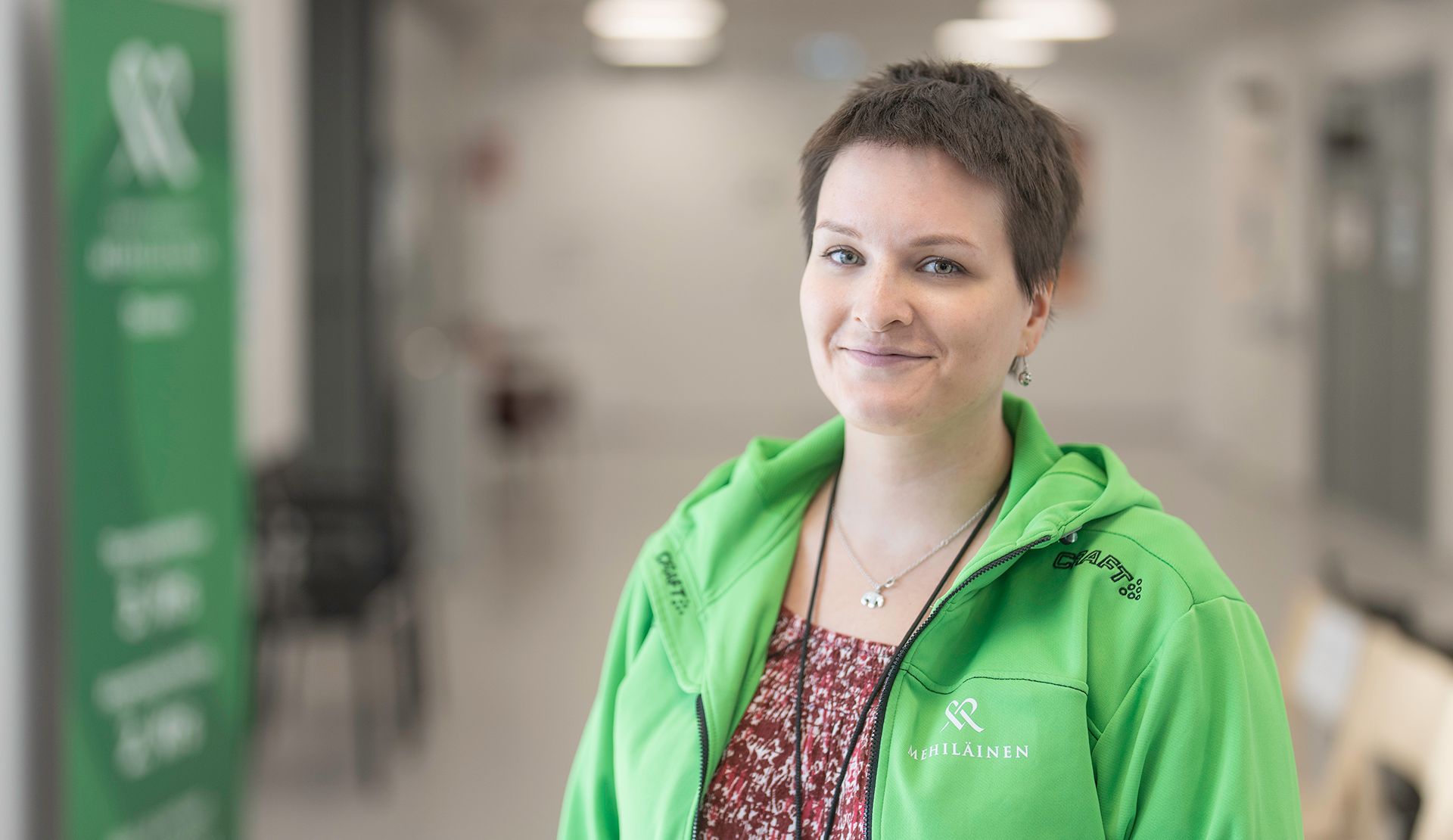
Sleep and sleep disorders
Specialists in the article


Revised 3/6/2025
Sleep disorders at a glance
- There are many different kinds of sleep disorders, such as insomnia, difficulty falling asleep, sleep apnoea causing pauses in breathing during sleep, restless legs syndrome, narcolepsy and various types of parasomnias.
- In addition to an in-depth interview, a sleep diary and various monitoring forms, sleep disorders can be examined by using various tests that measure sleep or alertness.
- Depending on the cause of the disorder, the treatment of sleep disorders can include advice and guidance provided by a specialist, digitally supported coaching programmes, a sleep apnoea oral appliance from a dentist and, for example, CPAP therapy for diagnosed sleep apnoea.
Sleep-related services
Sleep problems and sleep disorders
The definition of a good night's sleep is waking up in the morning feeling refreshed and well-rested. Good sleep quality is part of good quality of life. A busy or irregular lifestyle can prevent a good night's sleep. Shift work, children waking up at night, a disease or pain can occasionally disrupt sleep. This can result in, for example, the following:
- fatigue during the day
- sleep pressure
- challenges to stay awake
- a tendency to fall asleep during the day
- mistakes at work
- exhaustion.
The Impact of Aging on Sleep
As we age, the structure of sleep changes naturally. The amount of deep sleep decreases, and sleep becomes more fragmented. Nighttime awakenings and difficulties falling back asleep also become more common. However, it is important to distinguish between normal age-related changes and sleep disorders that require treatment. If sleep problems significantly affect your daytime alertness and quality of life, it is essential to seek help.
Examination of sleep disorders
It is often necessary to ask not only the patient but also their loved ones about symptoms and phenomena related to sleep and sleeping. In particular, snoring, pauses in breathing, leg movements and certain special symptoms, such as teeth grinding, i.e. bruxism, and sleep disorders in children can only be discovered when the patient's family members notice the situation. Alertness during the day and variations in symptoms are monitored with a sleep diary and monitoring forms.
In addition to an in-depth interview, a sleep diary and various monitoring forms, sleep disorders can be examined by using, for example, the following:
- a sleep apnea examination night polygraphy that is carried out at home
- a maintenance of wakefulness test to assess alertness.
- a comprehensive sleep study, polysomnography (PSG), to survey the state of sleep.
Of these examinations, Mehiläinen carries out sleep apnea examination (night polygraphies). In addition, our professionals have the option of referring the patient to our partner for a maintenance of wakefulness test or a comprehensive sleep study (polysomnography, (PSG)) if necessary.
Treatment of sleep disorders
Sleep disorders are treated by specialists, such as doctors, nurses, psychologists and therapists. The treatment of sleep disorders is tailored in accordance with the cause of the disorder. Depending on the cause of the disorder, the following can be used in the treatment of sleep disorders:
- advice and guidance provided by a specialist
- digitally supported coaching programmes
- customised noise-reducing earplugs for sleeping
- a personalised sleep apnoea oral appliance available through a dentist
- for example, CPAP in cases of sleep apnoea
Sometimes it may also be necessary to assess the current medication together with a doctor.
Mehiläinen's services for the treatment of sleep disorders include:
- Non-medicated treatment: Non-medicated treatment for sleep disorders (therapy)
- Guidance and advice: Guidance and advice provided by a specialist.
- Sleep apnoea oral appliance: A personalised sleep apnoea oral appliance available through a dentist.
- CPAP therapy: In the case of diagnosed sleep apnoea, treatments such as CPAP therapy can be used.
- Coaching programmes: Coaching programs related to sleep disorders.
- Video Library: By logging in to the OmaMehiläinen app, you will gain access to video material on sleep and sleep disorders.
Examination and treatment of sleep disorders at Mehiläinen
- Our sleep disorder specialists will help you figure out the cause of your possible sleep disorder and find the right treatment for it.
- If sleep apnoea is suspected, a sleep apnoea examination (nigth polygraphy) can be conducted.
- If surgical procedures are required, Mehiläinen's specialists have the expertise to perform various procedures.
- The treatment of a severe sleep disorder may require the collaboration of specialists from multiple fields.
If necessary, Mehiläinen can combine the expertise of several specialists – such as neurologists, psychiatrists, pulmonologists, ENT doctors and clinical neurophysiologists – to examine sleep disorders and treat patients.
Self-care for sleep disorders
You can influence your sleep through your actions during the day and evening. Stress, adversity and challenging life situations often affect sleep. You can improve your quality of sleep with the following measures, for example:
- Benefits: A natural way to promote falling asleep and improve sleep quality. Helps shift focus away from troubling thoughts.
- Do This: Try making your exhale significantly longer than your inhale, or focus on breathing deeply into your abdomen instead of your chest.
- Remember: The exercises do not require any special equipment or location. Consistency enhances the effect, but even a single exercise can provide immediate relief.
- Benefits: Helps clear your mind of worries at bedtime, calming the mind and reducing anxiety.
- Do This: Write down your worries in a notebook in the evening or if you wake up during the night. Use a pen and paper instead of a smart device. Revisit the things you’ve written down the next day.
- Remember: Writing down your worries provides relief in itself, even if you don’t solve them immediately.
- Benefits: Prepare the body and mind for rest, help you feel sleepy at the right time, and support a stable sleep rhythm.
- Do This: Stop engaging in active tasks well before bedtime, try relaxation exercises, and create a cozy, calm atmosphere for your evening.
- Remember: Consistency is key. Repeat the routine every evening to make it a habit.
- Benefits: Synchronizes the body’s internal clock, reduces daytime fatigue, and makes it easier to fall asleep at night.
- Do This: Use a bright light therapy lamp in the morning between 6–10 AM for about 20–30 minutes right after waking up.
- Remember: Consistency is crucial. The therapy is most effective during dark seasons when natural light is limited.
- Benefits: Even a 5–10% weight loss can significantly improve sleep. It reduces symptoms of sleep apnea and snoring while boosting daytime energy.
- Do This: Start gradually. Focus on a regular meal schedule and a balanced diet. Increase physical activity step by step.
- Remember: Be patient. Weight management is a journey, and lasting changes best support sleep and overall health.
- Benefits: Supports sleep, reduces stress, improves mood, creates physical fatigue, and strengthens the circadian rhythm.
- Do This: Exercise regularly for 20–30 minutes a day, preferably in the morning or afternoon. Even light activity, such as walking, is sufficient.
- Remember: Consistency is key. Avoid intense exercise 2–3 hours before bedtime. Choose an activity you enjoy and listen to your body.
- Benefits: Help identify and change harmful thoughts about sleep, reduce stress, and promote an accepting attitude toward sleeping.
- Do This: Recognize and challenge harmful beliefs, use a worry journal, practice relaxation and mindfulness techniques, and be compassionate toward yourself.
- Remember: Observing and accepting thoughts and emotions is a skill that develops with practice. Even small changes in thinking can improve sleep.
- Benefits: Act as a buffer against stress, prevent worries from occupying your mind at night, structure your day, and improve mood.
- Do This: Invest in meaningful relationships, stay active in keeping in touch, share your concerns, and find a community through hobbies or interests.
- Remember: Quality matters more than quantity. Fulfilling relationships are a valuable resource that also supports better sleep.
- Why: Caffeine and nicotine are stimulants that keep you awake. Alcohol reduces sleep quality and prevents deep sleep.
- Do This: Monitor all sources of caffeine. Aim to quit nicotine. Use alcohol in moderation and never as a sleep aid.
- Remember: Conscious choices regarding stimulants are a significant step toward better sleep.
- Benefits: A good position helps the body relax, reduces pain by keeping the spine neutral, and can ease breathing.
- Do This: Find a comfortable sleeping position. You can support your lower back with pillows if you sleep on your back.
- Remember: Changing positions during the night is normal. The goal is to find the most natural and relaxed position possible.
- Benefits: Supports sleep quality, helps the body and mind recover from strain, reduces stress, and calms the nervous system.
- Do This: Get enough sleep, engage in light physical activity, practice relaxation exercises, and spend time in nature. Take regular breaks.
- Remember: Find recovery methods that work for you. Combine both physical and mental techniques, and be kind to yourself.
- Why: Medications that primarily affect the central nervous system do not address the root causes of insomnia, but they can cause dependency, alter sleep structure, and lead to daytime fatigue.
- Do This: Use only as prescribed by a physician, in exceptional cases, and for short-term use. Always try non-medication methods first.
- Remember: Do not make changes to your medication on your own. Discontinuation should be done safely under a doctor’s guidance. The goal is to achieve natural sleep.
- Benefits: Calm the body and mind, reduce stress and arousal levels, and help shift focus away from worries.
- Do This: Try techniques such as body scanning (focusing on different parts of the body), alternating muscle tension and relaxation, or creating soothing mental imagery.
- Remember: Consistency is key. Relaxation is a skill that can be learned, so be kind to yourself as you practice.
- Benefits: Supports sleep quality, reduces hyperarousal, strengthens the circadian rhythm, and promotes overall well-being.
- Do This: Follow a consistent sleep schedule, take short breaks during the day, and avoid long naps over 30 minutes.
- Remember: Listen to your body and allow yourself to rest. Consistency is key.
- Benefits: Supports the body’s fluid balance and alertness. Prevents symptoms of dehydration, such as fatigue and headaches, which can disrupt sleep.
- Do This: Drink water regularly throughout the day. Limit large amounts of fluids right before bedtime. Pay attention to your thirst.
- Remember: Properly timed and adequate hydration improves both daily energy levels and the quality of your sleep.
- Benefits: Reduces arousal levels, calms the nervous system, decreases worrying, and breaks the cycle of stress and poor sleep.
- Do This: Practice relaxation exercises, engage in regular physical activity, schedule intense workouts for daytime, keep a worry journal, and establish calming evening routines.
- Remember: Find methods that work for you and be kind to yourself. Even small changes in your daily life can alleviate stress and support better sleep.
- Benefits: Helps maintain stable blood sugar levels and ensures adequate nutrient intake, both of which are essential for good sleep.
- Do This: Eat a varied and balanced diet regularly, about 4–6 times a day. Avoid heavy meals and stimulants in the evening. Drink enough water throughout the day, but limit fluid intake right before bedtime.
- Remember: A regular meal schedule and a balanced diet are an investment in your sleep and overall health.
- Benefits: Supports sleep by regulating the body’s internal clock, reducing stress, and improving mood.
- Do This: Spend 20–30 minutes outdoors daily, especially in daylight. Even a light walk is enough.
- Remember: Consistency is key. However, avoid intense physical activity right before bedtime.
- Benefits: Creates a distinction between day and night, helps the body and mind transition into a restful state, speeds up falling asleep, and makes sleep more restorative.
- Do This: Follow a consistent sleep schedule. Ensure your bedroom is dark, quiet, and cool. Avoid stimulants like caffeine, nicotine, and alcohol in the evening. Establish a calming, screen-free evening routine.
- Remember: Sleep hygiene is a skill that can be learned. Try different methods and find what works best for you.
- Benefits: Strengthens the body’s internal clock, makes falling asleep easier, improves sleep quality, and prevents daytime fatigue.
- Do This: Go to bed and wake up at the same time every day. Increase exposure to light in the morning and dim the lights in the evening. Avoid long naps and snoozing.
- Remember: Consistency is key, even on weekends. Adjusting your sleep schedule requires patience.
When to seek help for sleep problems
To diagnose sleep disorders, it's good to find out the underlying causes so that the symptoms can be treated correctly.
Seek treatment if:
- The sleep problems last for more than three weeks, occurring several nights a week, and trying to correct the situation yourself does not help.
- The most important of all indicators is your own coping. If you constantly sleep too little, you will lack refreshing and restorative rest. If prolonged, constant fatigue can cause problems in both your physical and mental health.
- A drop in mood and activity are signs that not everything is as it should be.
Prices are starting prices and depend on the selected studies and treatment methods. An outpatient clinic fee and Kanta fee are added to consultation visits.
| Service | Price estimate |
|---|---|
| Start of CPAP machine therapy (1st appointment with a sleep apnoea nurse) *The customer purchases a CPAP machine for themselves, starting from 224,20 €. | from 224,20 € No Kela reimbursement |
| Initial examination for snoring | from 140,10 € Without Kela reimbursement from 148,10 € |
| Concise sleep polygraphy No Kela reimbursement will be paid for a concise sleep polygraphy. Learn more and book an appointment for a concise sleep polygraphy | from 558,70 € No Kela reimbursement |
| First appointment for a sleep apnoea oral appliance The estimated total price of a sleep apnoea oral appliance starts from about EUR 1,200. Learn more and book a first appointment for a sleep apnoea oral appliance | from 96,80 € Without Kela reimbursement from 123,80 € |
| Initial evaluation for sleep apnoea | from 140,10 € Without Kela reimbursement from 148,10 € |
| Initial examination of sleep disorders | from 140,10 € Without Kela reimbursement from 148,10 € |
Sleep-related symptoms
Chronic fatigue syndrome
Deep exhaustion and weakness that does not improve with rest.
Fatigue
Many people experience occasional fatigue. Energy levels are influenced by lifestyle, health and many external factors.
Insomnia
Being stressed and busy daily can make it difficult to calm down, which, in turn, will affect sleep.
Narcolepsy
Excessive daytime sleepiness and episodes of suddenly falling asleep may be caused by narcolepsy.
Other sleep disorders
Sleep disorders include restless legs and the rarer disorders of narcolepsy, chronic fatigue syndrome and various parasomnias.
Restless legs syndrome
Uncomfortable sensations in the limbs at rest can disturb sleep.
Sleep apnoea
Narrowing of the airways and relaxation of the muscles during sleep can lead to pauses in breathing.
Snoring
Noise during sleep is caused by a narrowing of the airway.
Frequently asked questions about sleep and sleep disorders
The need for sleep is individual, but the average recommendation for adults is 7–9 hours per night. Children and young people usually need more sleep. It's important to remember that the quality of sleep is as important as its quantity.
A sleep disorder is a condition in which sleep is disrupted or abnormal. It can manifest itself in many different ways, such as insomnia, fatigue during the day or abnormalities such as snoring or sleep apnoea.
Naps can have a refreshing effect and provide a brief moment of recovery in the middle of a busy day. However, if you nap too late in the afternoon or too long, it may interfere with your sleep that night. The recommended maximum duration of naps is about 30 minutes.
Hereditary factors contribute to a person's susceptibility to sleep disorders. However, usually the person's own lifestyle and life events have a greater impact on sleep and its possible disruptions than hereditary factors.
If you suspect that you have a sleep disorder, you can book an appointment directly with a professional specialised in sleep disorders, a general practitioner or an occupational health physician. Mehiläinen offers multidisciplinary in the examination and treatment of sleep disorders.
Performing a sleep study requires expertise from multiple specialities. Mehiläinen offers multidisciplinary help for the examination and treatment of symptoms. For example, a sleep diary and monitoring forms can be used in the sleep study and, if necessary, sleep registration (typically a sleep apnea examination, night polygraphy) can be performed at home.


